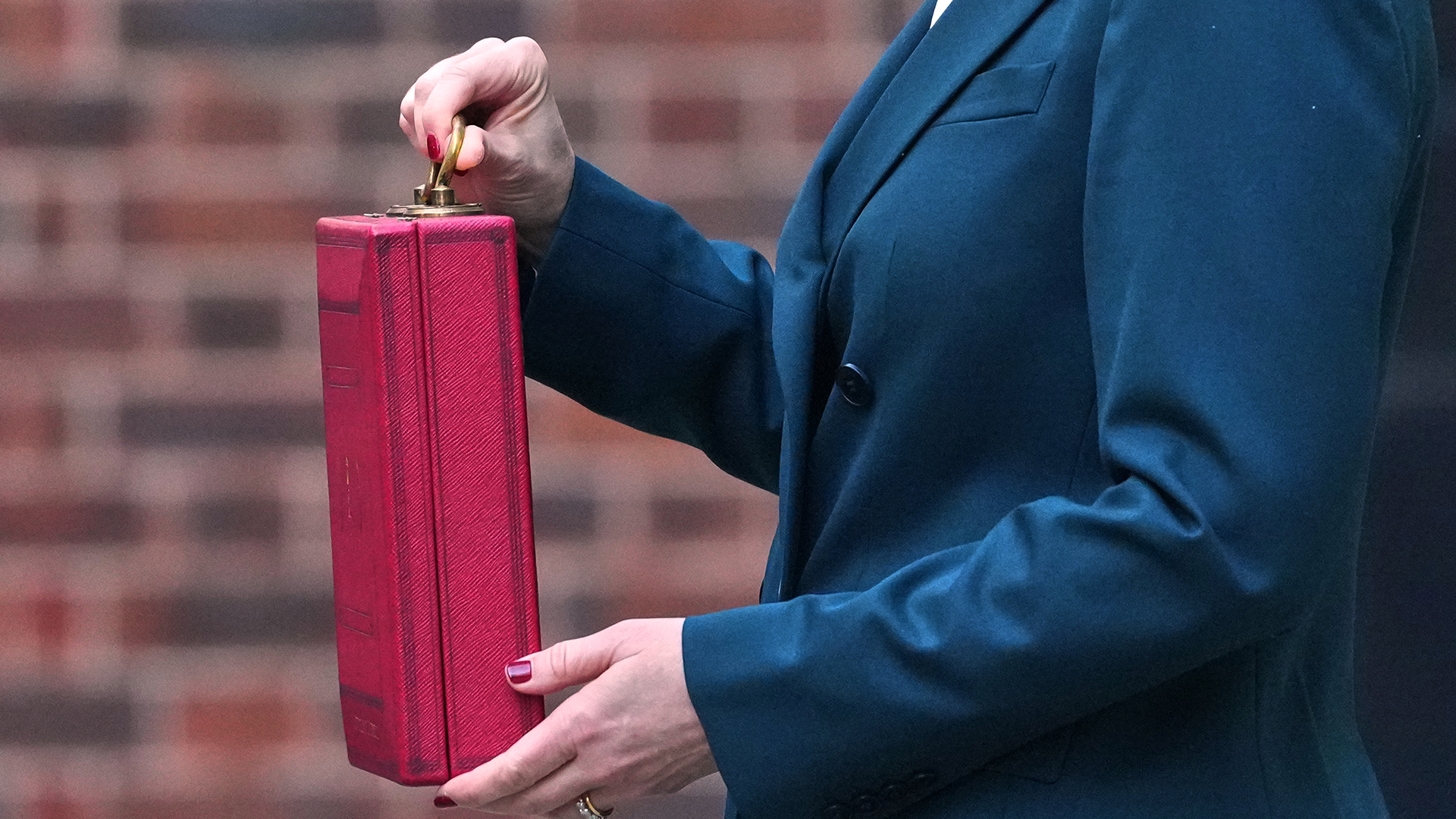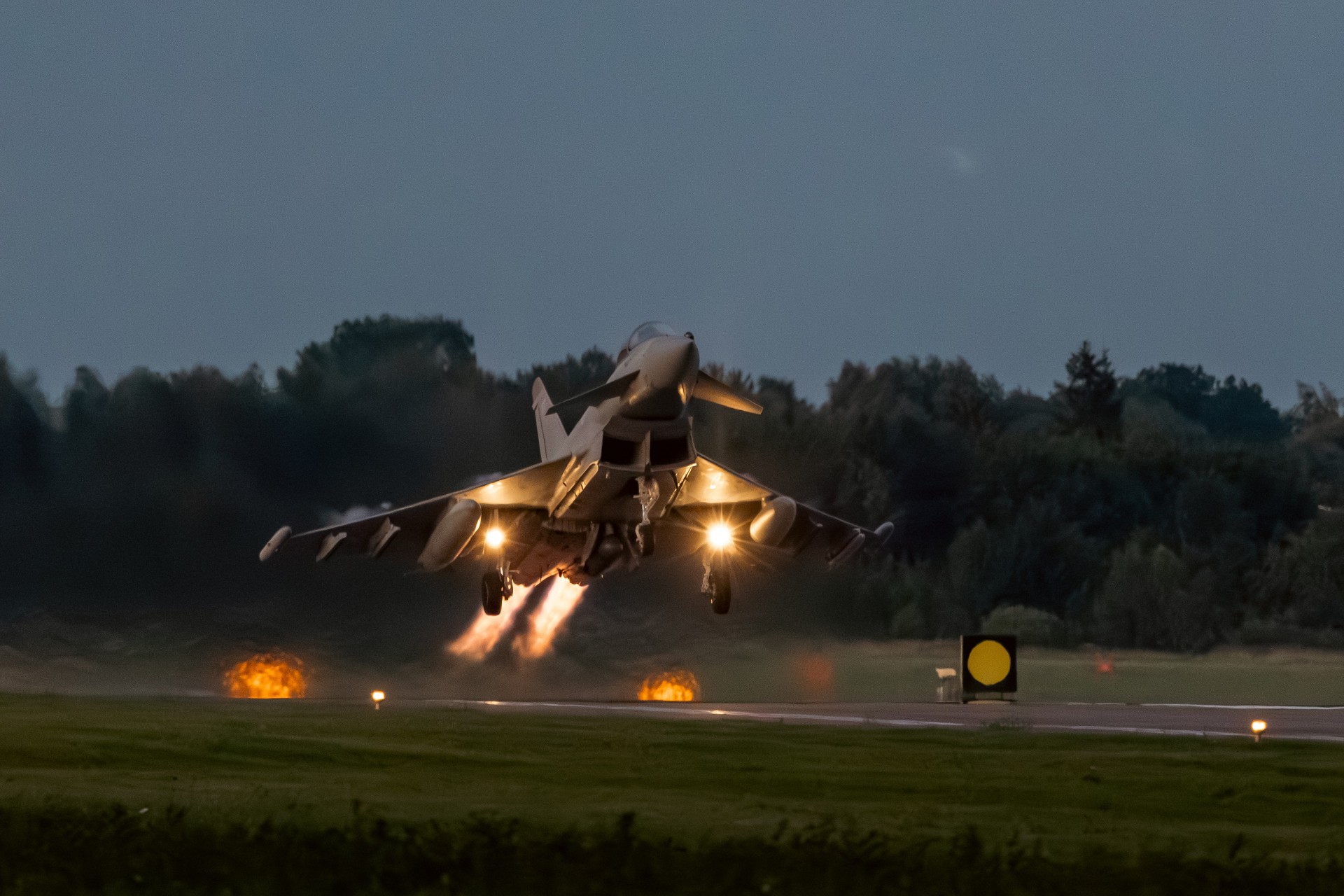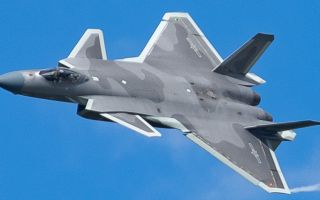
Budget: Extra £32 billion needed if defence spending to reach 3.5% by 2035, OBR says

Chancellor Rachel Reeves has said that the government is committed to spending 2.6% of GDP on defence by April 2027.
However, the Office for Budget Responsibility (OBR) has warned that the previous commitment for defence spending to reach 3.5% of GDP by 2035 "would cost an additional £32 billion in today's money".
Defence was hardly mentioned during her speech, despite the Chancellor referring to the UK living in an "age of insecurity".
She told MPs: "I will take the same approach for defence spending that I take to NHS spending, reinvesting savings back into our national security.
"In our age of insecurity, Britain will continue to stand with our allies, working in collaboration to secure a sustainable ceasefire for Ukraine, and maintaining our commitment to Nato, with the UK set to spend 2.6% of GDP on defence by April 2027," she continued.
However, the OBR, which scrutinises the feasibility of government financial plans, identified the Government's prior commitment to spending 3.5% of GDP on defence by 2035 as a "major spending risk."
Defence spending stood at 2.0% of GDP in the 2025-26 financial year, according to the OBR.
National security think-tank The Henry Jackson Society said the Budget "leaves serious holes in UK defence and national security plans".
Dr Alan Mendoza, executive director, said: "This Budget talks up defence investment, but the numbers simply don't match the rhetoric.
"The Government sets ambitious targets, yet the OBR shows a £32bn black hole under its 3.5% defence pledge.
"Without a funding plan, that isn't a strategy – it’s a slogan."
Major (Ret'd) Andrew Fox, an Associate Research Fellow at the Henry Jackson Society, said: "Recent warnings from senior MOD figures that the UK must prepare for the possibility of direct conflict with Russia within the next five years, further underline the gap between the Government's rhetoric and its resourcing.
"The Budget does not provide the funding needed to accelerate readiness, rebuild stockpiles or strengthen Nato-facing force posture at the pace the strategic environment demands."

At a glance
The Budget also contained several personal tax measures that will affect military personnel and their families, such as plans for tax thresholds to be frozen for an additional three years from 2028.
The point at which people start paying higher rates of tax will be held at the current figure of £50,270. This means earners can be dragged into higher tax bands when they get a pay rise.
The government will also scrap the two-child benefit cap from April 2026. This currently limits the amount of benefits parents can claim for their third child or subsequent children who were born after 6 April 2017. By scrapping the cap, the government hopes an estimated 450,000 children will be lifted out of poverty.
The average annual energy bill will be cut by £150 from April by reducing levies. The Energy Company Obligation (ECO) scheme, which is designed to tackle fuel poverty and help reduce carbon emissions, will be scrapped.









